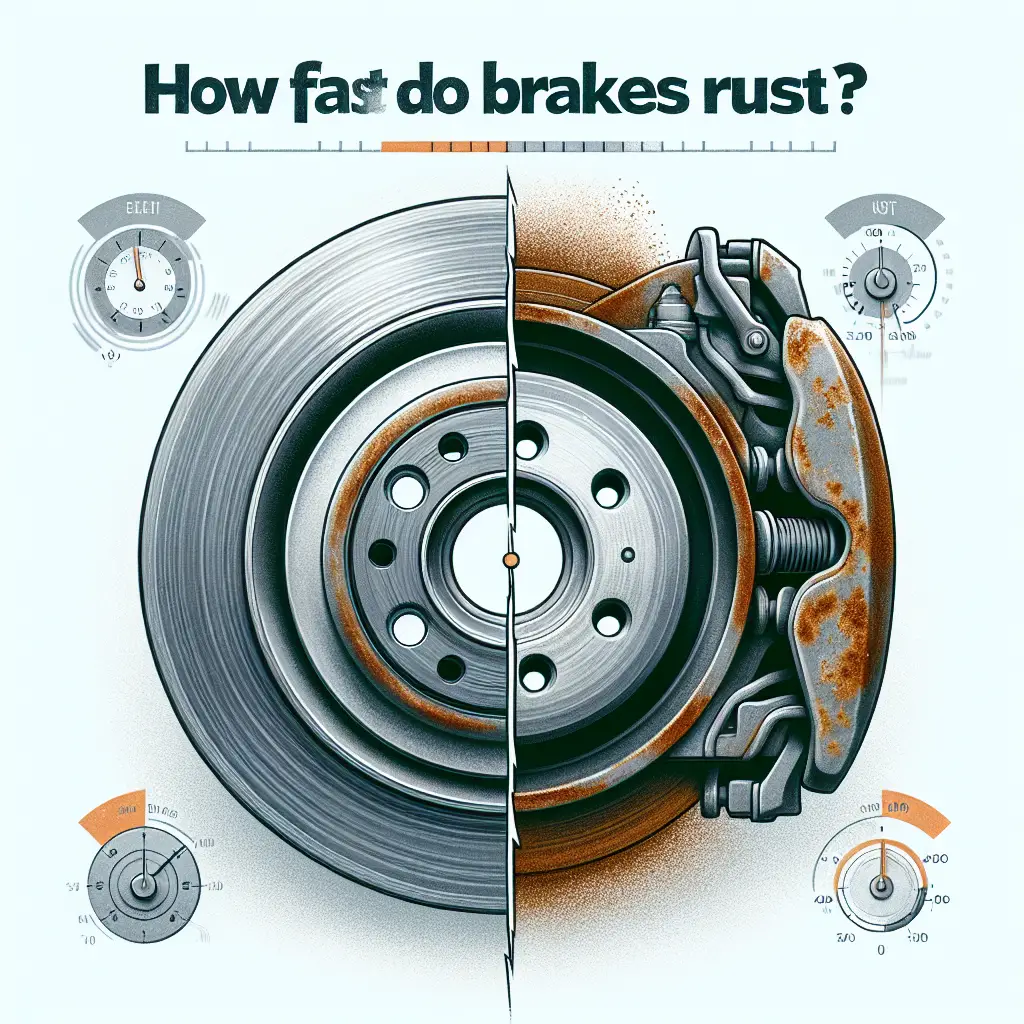Title: How Fast Do Brakes Rust? Understanding the Life Cycle of Your Vehicle’s Critical Safety Feature
As an essential aspect of vehicular safety, your vehicle’s brakes are something you can’t afford to overlook. One of the perplexing concerns for many car owners is brake rust. It’s a common issue that can lead to several bigger problems if left unattended. But how fast do brakes rust, and what can you do to prevent it? In this article, we unpack the rusting process of brakes and offer proactive solutions to maintain the integrity of this crucial auto component.
Understanding Brake Rust: What Causes It?
Brakes, much like any other component of your vehicle, are susceptible to the elements. They are exposed to a variety of environmental factors – from road salt in the winter to atmospheric moisture on a rainy day. The main culprit behind brake rust is the oxidation process, where iron or steel reacts with oxygen and moisture. Don’t forget, your brakes are not immune to this chemical reaction, especially when your car is parked outdoors for extended periods.
The Speed of Rust Formation on Brakes
The rate at which rust forms on the brakes can vary based on several factors. If you’re living in a coastal area with high humidity, or regions where roads are frequently treated with salt, you’re likely to observe rusting at a quicker pace. Typically, surface rust can form on brake rotors within a few hours of exposure to moisture but don’t panic – this superficial rust layer often wears off after a few brake applications (Rust).
However, if the vehicle is left stationary for days or weeks on end, the rust may become more severe. It’s worth noting that how quickly the brakes rust also depends on the type of materials they are made of. High-carbon rotors, for instance, are designed to resist rust better than standard ones (Materials and Coatings).
The Implications of Rusty Brakes
Minor rusting on the surface of brakes is generally not a cause for alarm; it’s a cosmetic issue that resolves with regular use. However, if you allow rust to build up continually, it may lead to:
- Reduced braking efficiency, as rust can create an uneven surface on the rotor, leading to braking vibration or pulsation.
- Premature wear of brake pads, as the abrasive rust can cause the pads to wear down more quickly.
- Potential for the brakes to seize up, especially if the vehicle remains unused for long periods.
Preventive Measures to Avoid Brake Rust
- Regular Use: One of the simplest strategies to prevent rust is to drive your car regularly. Regular usage ensures that any superficial rust that forms is scrubbed off by the brake pads.
-
Proper Storage: If you’re planning to store your vehicle for a while, try to keep it in a dry, climate-controlled environment. If that’s not an option, consider using a breathable car cover to protect it from moisture (Car Storage).
-
Quality Brake Parts: Invest in high-quality brake components equipped with rust-resistant coatings. These can extend the life of your brakes significantly.
-
Regular Maintenance: Regular brake inspections are paramount. A mechanic can spot signs of rust during a regular service and take action before it becomes a more severe issue.
-
Washing and Cleaning: Routinely wash your vehicle, paying special attention to the undercarriage and wheel wells where salt and grime can accumulate.
When to Seek Professional Help
If you’ve noticed that your brake performance has diminished, or if there’s a concerning amount of rust visible on your brake components, it’s important to seek professional help. Mechanics can assess whether the rust can simply be cleaned off or if more extensive repairs or replacements are necessary.
FAQs on Brake Rust
Q: Can brake rust affect my car’s safety?
A: Yes, while surface rust is typically not a concern, excessive rusting can compromise braking performance and, in turn, vehicle safety.
Q: How can I tell if my brakes are too rusty?
A: Look for deep pitting, significant discoloration, or grooves on the surface of the brake rotor. If you’re uncertain, have them inspected by a professional.
Q: Is it normal to see rust on new brake rotors after they get wet?
A: Yes, a thin film of rust may form on new rotors after exposure to moisture, but it typically wears off after a few braking cycles.
Q: Will driving in the rain cause my brakes to rust?
A: Driving in the rain can contribute to the formation of superficial rust, but it’s generally not a long-term issue.
In conclusion, brake rust can develop quickly but can also be mitigated through regular vehicle use and maintenance. By staying informed and proactive, you can ensure that your vehicle’s brakes remain effective and safe. Remember that your car’s brake system is not invincible to the elements, but with the right care, you can significantly slow down the inevitable rusting process and maintain optimal performance.
For further reading, consider exploring resources like Consumer Reports for detailed advice on brake maintenance and safety. It’s your responsibility as a car owner to look after your vehicle’s health and safety components, and staying ahead of issues like rust is an integral part of that responsibility.

